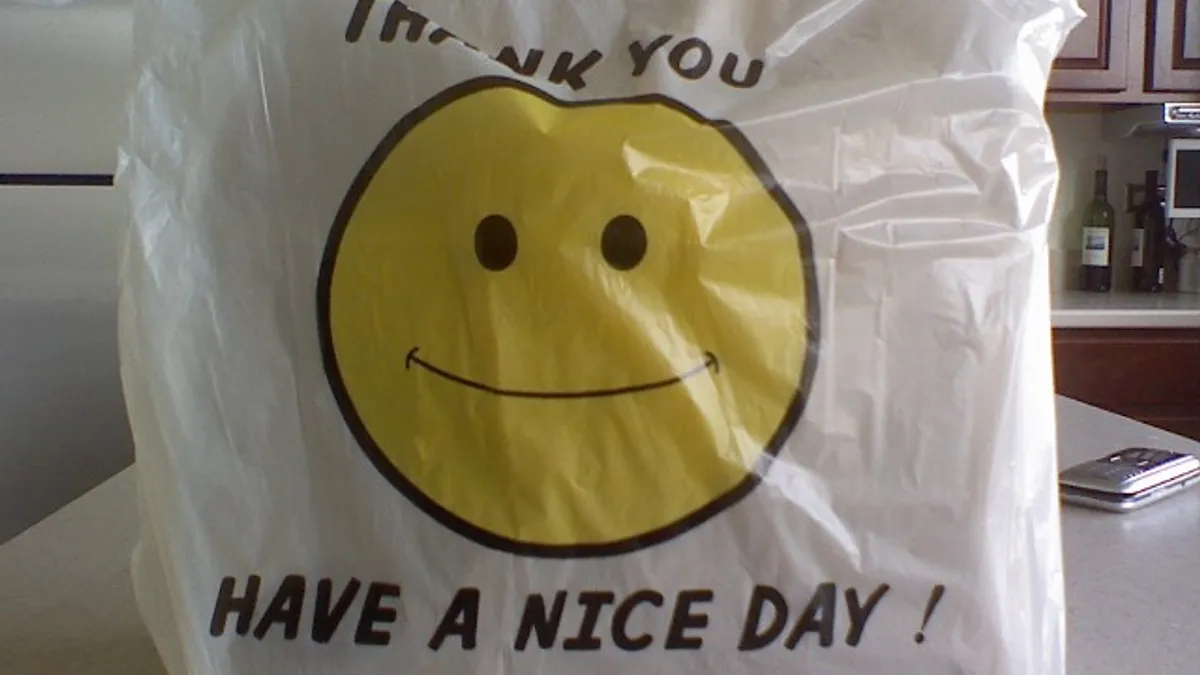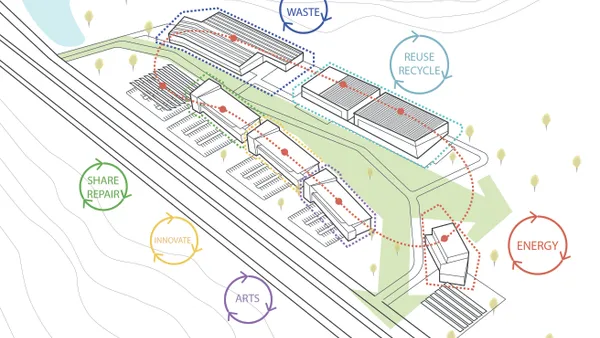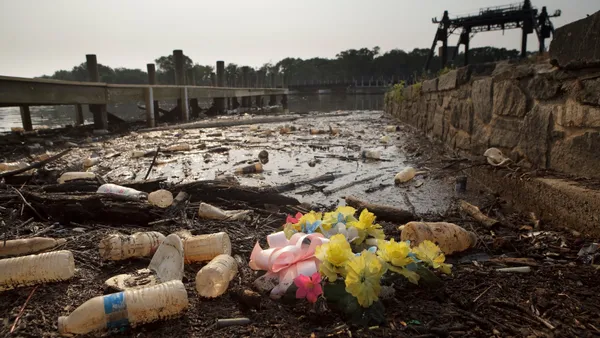Dive Brief:
- Chicago Mayor Rahm Emanuel's $8.2 billion city budget was approved by city council this week, which included a a 7-cent fee on paper and plastic bags at Chicago retail or grocery stores, as reported by ABC 7.
- The fee, which was proposed in October, is a reversal to a failed partial bag ban across the city which ended up costing more money for retailers without much of an environmental benefit. The new tax aims to encourage Chicagoans to change their behaviors and use reusable bag alternatives.
- ABC 7 reports that the average Chicagoan goes through 500 plastic bags a year, totaling 1.3 billion bags citywide annually.
Dive Insight:
Chicago's new tax on paper and plastic bags is not too unique of a development for the waste industry considering measures across many cities and states to tax or ban bag entirely. Washington, DC; Portland, ME; and Boulder, CO are all commonly recognized for their plastic bag fees, and California recently became the first state in the nation to pass a ban on single-use plastic bags through statewide legislation. Hawaii also has a de facto statewide ban on single-use bags.
While it is unclear where the majority of the 7-cent fee will go, the Daily Herald reported that retailers will receive 2 cents per bag from the tax, which should amount to $3.6 million from shoppers in the next year. This revenue should hopefully make up for the costs of the bag ban, during which retailers lost a lot of money, and instead encourage retailers to be compliant with the new tax.
The Chicago area has had its share of waste-related obstacles this year, including 11% of waste carts that were damaged by "aggressive squirrels" and multi-unit recycling ordinance which faced strong opposition in July. While it is likely that this bag tax will also stir up some controversy in the city, it is a step in the right direction for the city to keep plastic bags out of MRFs, landfills and waterways.














